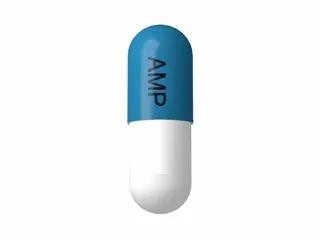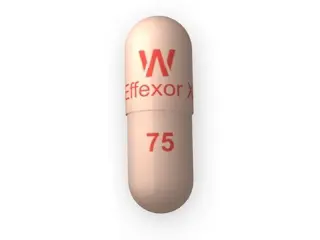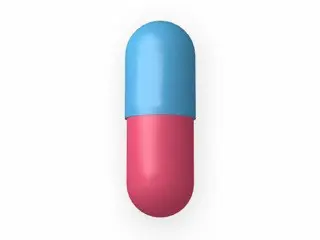Antidepressants
Find a wide selection of effective antidepressants to support your mental well-being. Shop trusted medications designed to help improve mood, reduce anxiety, and restore balance. Fast, discreet delivery available.
Antidepressants are medications used to treat depression and other mood disorders. They work by balancing chemicals in the brain. Different types of antidepressants target different neurotransmitters such as serotonin, norepinephrine, and dopamine. Choosing the right antidepressant depends on the individual’s symptoms and medical history.
Abilify is an atypical antipsychotic often used as an add-on treatment for depression. It can improve mood and reduce symptoms when other antidepressants alone are not enough. Common side effects include restlessness and nausea.
Bupropion SR (sustained release) helps with depression and smoking cessation. It works differently than many antidepressants by affecting dopamine and norepinephrine. It is less likely to cause sexual side effects but may increase the risk of seizures in some people.
Celexa (citalopram) is a selective serotonin reuptake inhibitor (SSRI) known for treating depression and anxiety. It usually has a mild side effect profile, with nausea and sleep disturbances being common. Dose adjustments are recommended based on age and heart health.
Cymbalta (duloxetine) is a serotonin-norepinephrine reuptake inhibitor (SNRI). It treats depression, anxiety, and nerve pain. Many users report improvement in both mood and physical symptoms, though it may cause dry mouth and dizziness.
Desyrel (trazodone) is often used to treat depression and insomnia. It is effective at improving sleep patterns but may cause drowsiness during the day. It works by affecting serotonin levels in the brain.
Effexor and Effexor XR (venlafaxine) are SNRIs useful in depression and anxiety disorders. The extended-release form allows for once-daily dosing. Possible side effects include increased blood pressure and headaches.
Elavil (amitriptyline) is a tricyclic antidepressant (TCA) that treats depression and chronic pain. Older than SSRIs and SNRIs, it carries a higher risk of side effects such as dry mouth and weight gain.
Endep also contains amitriptyline, familiar for treating depression and nerve pain. It is sometimes preferred for patients who do not respond to newer antidepressants.
Eskalith (lithium carbonate) is a mood stabilizer used with antidepressants to manage bipolar disorder. It requires regular blood tests due to its narrow therapeutic range and risk of toxicity.
Geodon (ziprasidone) is an antipsychotic used in combination with antidepressants for mood disorders. It has a lower risk of weight gain but requires monitoring for heart-related side effects.
Lexapro (escitalopram) is an SSRI similar to Celexa but considered more potent. It is widely prescribed for depression and generalized anxiety disorder with a relatively favorable side effect profile.
Luvox (fluvoxamine) is another SSRI, mainly used for obsessive-compulsive disorder (OCD) and depression. It may interact with several medications, so caution is necessary.
Nortriptyline (Pamelor) is a TCA that helps with depression and nerve pain. It tends to have fewer side effects than other tricyclics but still requires careful monitoring.
Paxil (paroxetine) and Paxil CR are SSRIs used for major depression and anxiety disorders. They are effective but may cause weight gain and withdrawal symptoms if stopped abruptly.
Remeron (mirtazapine) is unique because it boosts serotonin and norepinephrine by blocking certain receptors. It tends to improve sleep and increase appetite, making it useful for patients with insomnia and poor appetite.
Risnia and Risperdal (risperidone) are antipsychotics often used with antidepressants for mood disorders. They help when antidepressants alone are insufficient. Side effects can include weight gain and movement disorders.
Seroquel (quetiapine) is another antipsychotic added to antidepressant therapy. It helps treat depression, bipolar disorder, and schizophrenia. Drowsiness and weight gain are common side effects.
Sinequan (doxepin) is a TCA effective for depression and anxiety. It also has antihistamine properties and is sometimes used for insomnia.
Tofranil (imipramine) is one of the first TCAs used for depression and bedwetting in children. It can cause dry mouth, dizziness, and increased heart rate.
Venlor (venlafaxine) is similar to Effexor and is effective in treating depression and anxiety with extended-release options to improve adherence.
Wellbutrin and Wellbutrin SR are brand names for bupropion. Known for energizing effects, they are less likely to cause sexual dysfunction and weight gain.
Zyprexa (olanzapine) is used alongside antidepressants for treatment-resistant depression. It carries a higher risk of weight gain and metabolic syndrome and is used under close supervision.
In summary, antidepressants include SSRIs, SNRIs, tricyclics, atypical antidepressants, and antipsychotic medications used in combination. Each medication has unique benefits and side effects. Healthcare providers tailor treatments based on patient needs, symptom profiles, and response to therapy. It is important to follow medical advice and report any side effects promptly. Antidepressant therapy often takes several weeks to show improvement, so patience and adherence are crucial for success.



























